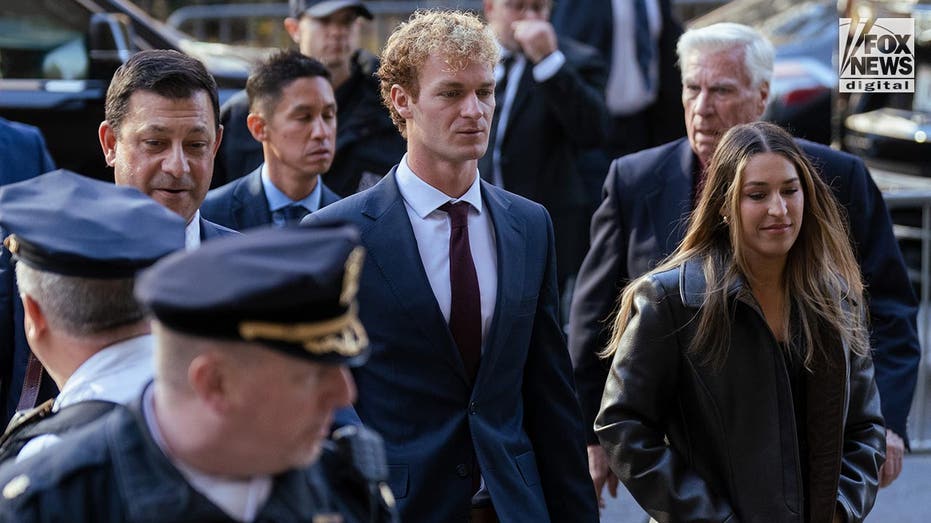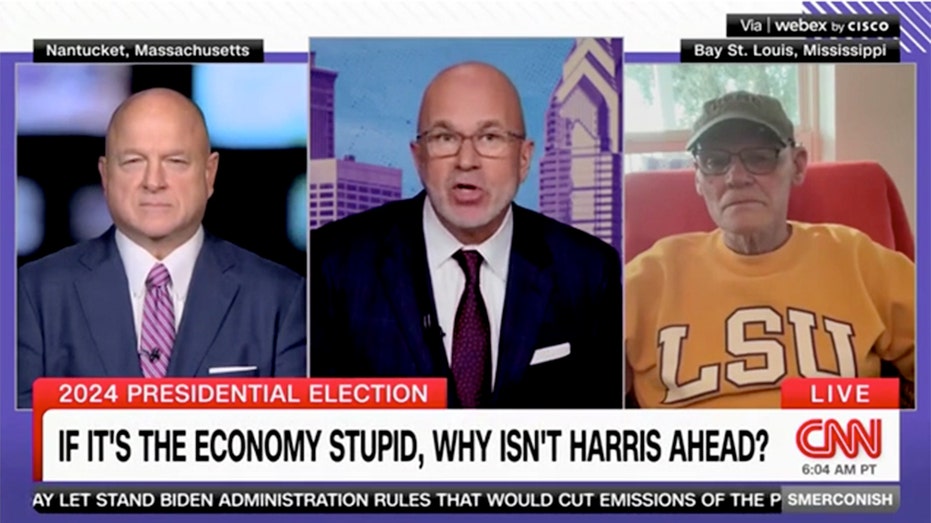Daniel Penny trial resumes with third day of testimony from medical examiner, questions over cause of death
Dr. Cynthia Harris returned to the witness stand for her third day of testimony Monday in the trial against Daniel Penny for chokehold that killed Jordan Neely.

NEW YORK – New York City Marine veteran Daniel Penny returned to court Monday for his manslaughter trial, and the third day of testimony from the prosecution's key witness, Dr. Cynthia Harris, with the Office of the City Medical Examiner, whose previous mention of the word "homicide" on the witness stand was stricken from the record.
Penny, 26, is on trial for the 30-year-old Neely's death, but he is not accused of killing him on purpose. Prosecutors have charged him with manslaughter and criminally negligent homicide. Neely barged onto a subway car, threw his jacket on the ground and started making erratic death threats, according to witnesses.
Under cross examination Monday, she said that it was "possible" that Neely may have died from complications of sickle cell trait, a genetic blood disorder, which were exacerbated during the struggle, but not probable.
MEDICAL EXAMINER SAYS SUBWAY MADMAN HAD DRUGS IN SYSTEM IN MARINE VET'S CHOKEHOLD TRIAL
Under re-direct questioning from prosecutors, she said she believed Neely would have died from asphyxiation whether or not he had sickle cell trait
"This is a protracted struggle," she said. If he were to die from sickle cell it would have been hours or days later.
Defense attorney Steven Raiser circled back on the topic, asking Dr. Harris if the same type of sickle cell found on Neely's autopsy could have caused a death.
"Sure, uhh, yes," she said.
She also conceded that she didn't know what Neely was doing before he got on the train, or when the "sickling" process began.
If Penny had let go at a key moment when Neely stopped moving, Dr. Harris testified that she would have expected Neely to wake up, even if he might have died later due to sickle complications.
When discussing Jordan Neely's cause and manner of death on Friday, Harris mentioned that "Dr. Graham reviews all homicide reports."
Judge Maxwell Wiley ordered that comment to be stricken, but other testimony in the conversation leading up to it would remain part of the case.
Earlier this month, Penny's defense had moved for a mistrial alleging that prosecutors were improperly painting Neely's death as a racial issue. Penny is not accused of a hate crime.
The defense argued that Penny is not getting a fair trial, and raised a number of objections, saying that the prosecution was trying to paint Penny as a "White vigilante" and improperly allowed witness Johnny Grima, a homeless man with a conviction for bashing someone with a bat, to call the defendant a "murderer" from the witness stand when he has not been accused of murder.
Wiley denied that request also but told Penny's team "I see what you're getting at."
Before jurors entered the room Monday, the sides discussed with the judge entering additional evidence – a police report that described Neely as a screaming man, as opposed to screaming when police arrived.
He was unresponsive when the police arrived, but there was confusion related to Dr. Harris' testimony.
She returned to the stand for the third day on Monday. She is the 34th witness called by the Manhattan District Attorney's Office.
Although Neely had synthetic drugs in his system that she likened to cocaine, she said she did not wait for the toxicology report to declare his cause and manner of death and was adamant that he died of asphyxiation, not cardiac arrest. He still had a pulse when Penny let go.
There was no damage to bones in his chin, neck or midline structures, she said. She found scrapes and bruises on his face, neck, torso and arms, petechiae (small red spots caused by bleeding) in his eyes and organ damage from his sickle cell trait.
Prosecutors rested their case after she left the witness stand Monday afternoon. Penny's defense began with attoreny Thomas Kenniff calling their first witness, Penny's sister Jackie.
She is a year older than the defendant, she said, and discussed growing up in the suburban Long Island community of West Islip, where her brother played lacrosse and upright bass and was a good student.
After he graduated high school, he joined the Marine Corps, she said. She was "a little surprised," but her "very soft-spirited" brother had always been patriotic and their family had a history of military service, she said.
She said her brother has the reputation of being an honest person, an empathetic person, a compassionate person.
Prosecutors objected and were overruled.
The sister continued that within the family, Penny has a reputation for being a calm and peaceful person – all of these characteristics are his known reputation in family, friends, school, the neighborhood, she said, adding that – she’s never heard any of his friends speak negatively about him.
Harris' testimony began Thursday, after Joseph Caballer, the Marine martial arts instructor who had taught Penny about chokeholds, told the jury that the point of the maneuver is to take control of a threat until they are unconscious.
Testimony is expected to conclude before Thanksgiving.
If convicted of the top charge of manslaughter, Penny faces up to 15 years in prison.



